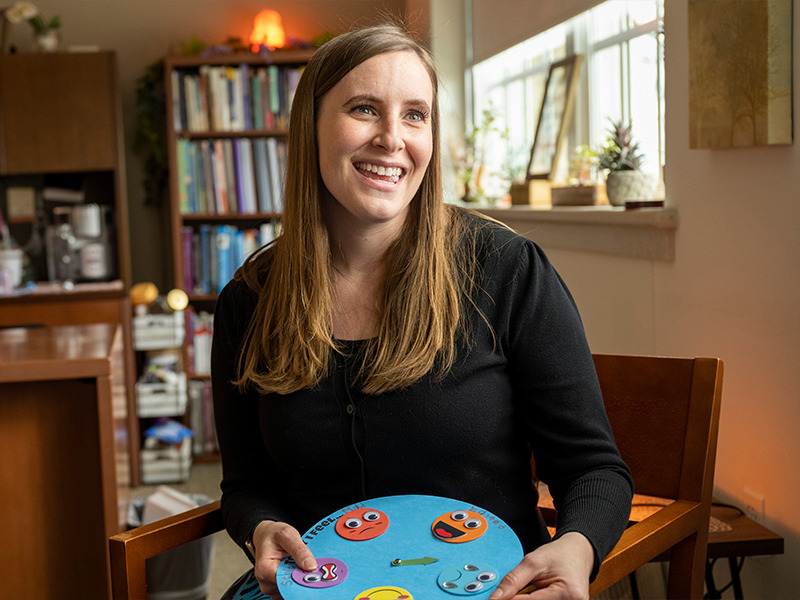Milton Hershey School Psychologists Share Tips on Navigating Middle School
By Michelle Allen and Allison Carrier, Middle Division Psychologists
Middle school is a time to make friends, explore interests, discover talents, and learn new things. Students are also experiencing a great deal of mental, physical, and emotional changes. Navigating middle school can be tough. During this transition, even though so many “things” are happening, middle schoolers often feel most alone and afraid of being judged or misunderstood. They think they are too young but also not old enough. They also believe they have all the answers and feel like no one else has ever felt what they are going through.
For parents, this is also challenging because the relationship seems to have switched overnight. The fact is, adolescents are not the same child they were because of the developmental changes they are experiencing. Instead of yearning for the past, consider seeing this season as an opportunity to meet your middle schooler.
Using our personal experience raising our own children and working with Milton Hershey School students in this age group closely, here are suggestions on how children can be heard and seen and adults can lovingly support the children in their life.
Make a plan
You’d be surprised when kids open up and it’s often during the most regular, everyday activities, not always a sit-down dinner. Try chatting in the car while driving to and from activities, cooking together, or even cleaning. These organic moments can be the most insightful because they are casual and natural, setting the stage for free-flowing conversation without barriers and insecurities. If your family prefers a more structured approach, consider establishing a routine where all members of the family share highs and lows of the day, ask “would you rather” questions, read a reflection, tell a joke, or discuss a current event. This allows everyone, kids and grown-ups alike, a chance to describe what they are thinking and feeling.
Understanding that schedules are busy, these conversations may be better during the weekend. Find a time that works for your family so there is little-to-no stress or rush.
Set expectations
Reflect on what you want out of the conversation and why you are starting it. Make sure it’s beginning with an assuring and welcoming tone. When the goal is connection, establishing a relaxed and inviting environment can help foster conversation without coming across as interrogating. It’s also good to ask the child how they can best be supported at this time— do they just want someone to listen or are you working to solve a problem together? Other ground rules could include setting a time limit or establishing that no cell phones or electronics will be used during this quality time. These parameters allow for full engagement and attention focused on each other.
Embrace the feelings
There are a lot of feelings in middle school, common ones that we often hear are weird, awkward, and uncomfortable. You could start the conversation with your own childhood story to humanize what happened when you were the child’s age. This could prompt follow-up questions, such as “what would you have done in that situation, or what could I have done better?” This changes the focus to an active problem-solving session while you can subtly provide advice and the child can come up with their own solutions.
Stay flexible
The relationship between a parent and child is a two-way street. While it is work at times, remaining open to listening will foster a dynamic of patience and understanding. While navigating middle school with a student, adults get to meet their child where they are at and explain through examples of what worked and what didn’t in their own previous experience. Consider prioritizing one-on-one time with the child if there are multiple children in the home or things competing for attention. Another idea is to bring children into the family decision-making process which can also open the doors to learning more about what is important to the child.
There’s no doubt having conversations with your middle schooler can be challenging. Through thought, planning, and effort, these interactions can be uplifting and positive. You’ll feel happy and your child will feel accepted. Open and honest communication now will bring you closer to your child than ever before and lead to life-long rewards.
Read More about How MHS Cares for the Whole Child


